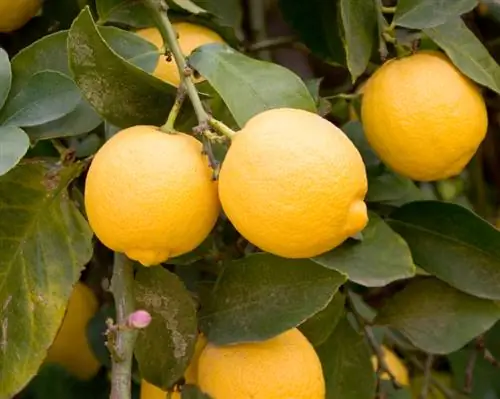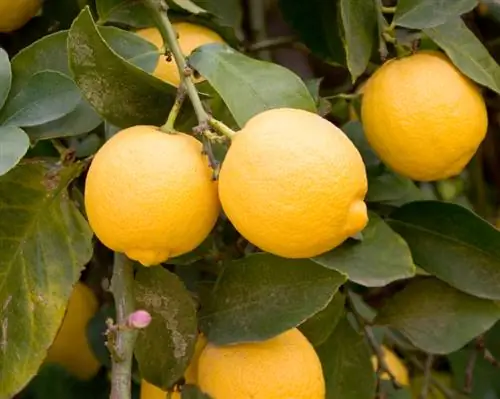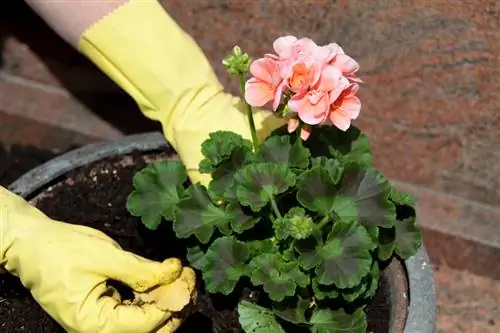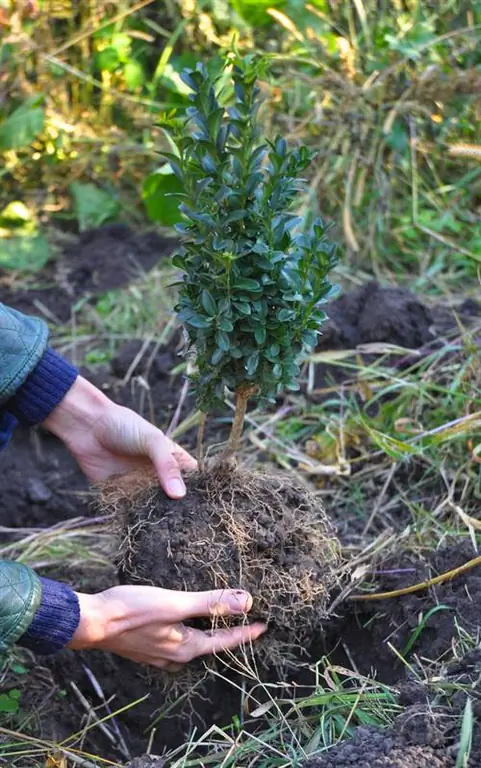- Author admin leonars@hobbygardeners.com.
- Public 2023-12-16 16:46.
- Last modified 2025-01-23 11:20.
We have been growing lemon trees for several centuries. While such a plant used to be found mainly in the orangeries of rich nobles, today any interested hobby gardener can grow a lemon tree themselves. With good care, you can even harvest your own lemons.

When and how do you harvest lemons from the lemon tree?
Lemons are ready to harvest when they yield to light pressure, smell pleasant and can be easily removed from the tree. The harvest time can be all year round, as the fruits take different lengths of time, around six to nine months, to ripen.
Fertilization and fruit development
As a subtropical plant, the lemon blooms all year round. The white, strongly scented flowers are usually self-pollinated, but pollination by insects is also possible. Lemons are also capable of so-called parthenocarpy, i.e. H. Fruits develop even without any fertilization. However, these are seedless. Some lemon seeds are polyembryonic. Therefore, you don't have to be surprised if you put a seed in the ground and several trees develop from it.
Lemons are edible
If you buy a small lemon tree with fruit on it at the garden center, you will often be told that the lemons are not suitable for consumption. In fact, it is better not to eat these fruits because the plant has usually been treated with toxic pesticides. However, you can harvest and use fruits that develop later without worry, because the lemons sold are usually not purely ornamental plants.
The right harvest time
Just as the flowers can be found on the tree all year round, the lemon also bears fruit all year round. However, they take a comparatively long time to ripen - on average it takes around six to nine months from the flower to the ripe lemon. Ripe lemons do not necessarily have to be yellow; the color is not an indication of the degree of ripeness. It only occurs when the lemons are exposed to cold weather. You can also leave ripe lemons on the tree for many months; the fruits will neither fall overripe nor start to rot.
Prune lemon tree regularly for higher harvest
The lemon tree needs strong branches so that the fruits can develop. That's why annual pruning in autumn is necessary so that the tree doesn't go bald and can channel its energies into fruit-bearing branches. Since almost every flower develops into a fruit, you should remove excess lemons - the remaining ones then have a higher chance of reaching fruit ripeness and also become significantly larger.
Tips & Tricks
A lemon is definitely ripe if it yields to light pressure, smells aromatic and can be removed from the tree with a slight twist. By the way, lemon trees have a very long youth period: trees grown from seeds only flower and bear fruit after eight to twelve years at the earliest.






